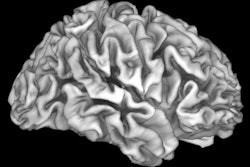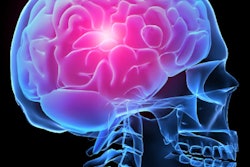With the help of MRI, researchers from the University of California, San Diego (UCSD) have estimated that an adverse event in life can age a person's brain by about 4.5 months.
The study, published online March 8 in Neurobiology of Aging, targeted older men who experienced a major adverse event, such as a divorce, separation, or financial hardship. Even when controlling for confounding factors including cardiovascular risk, alcohol consumption, ethnicity, and socioeconomic status, the researchers could measurably determine how much the subjects' brains had aged beyond their chronological years.
Led by senior author William Kremen, PhD, a professor of psychiatry at UCSD, the researchers asked 359 men between the ages of 57 and 66 years to chronicle life-changing events over the previous two years. The researchers then compared those events with a similar measure collected five years earlier.
All participants underwent MRI scans to assess physiological traits such as brain volume and cortical thickness, which are associated with consciousness, memory, attention, and cognition. The researchers found that each adverse event caused the brain to appear physiologically older by approximately 0.37 years, compared with the person's chronological age.
The ability to predict brain age could help clinicians better understand patients' brain health relative to their age, Kremen and colleagues noted. Additional, broader studies with more diverse participants are warranted to validate the findings, as the study consisted of older, predominantly white men, they added.



.fFmgij6Hin.png?auto=compress%2Cformat&fit=crop&h=100&q=70&w=100)




.fFmgij6Hin.png?auto=compress%2Cformat&fit=crop&h=167&q=70&w=250)











